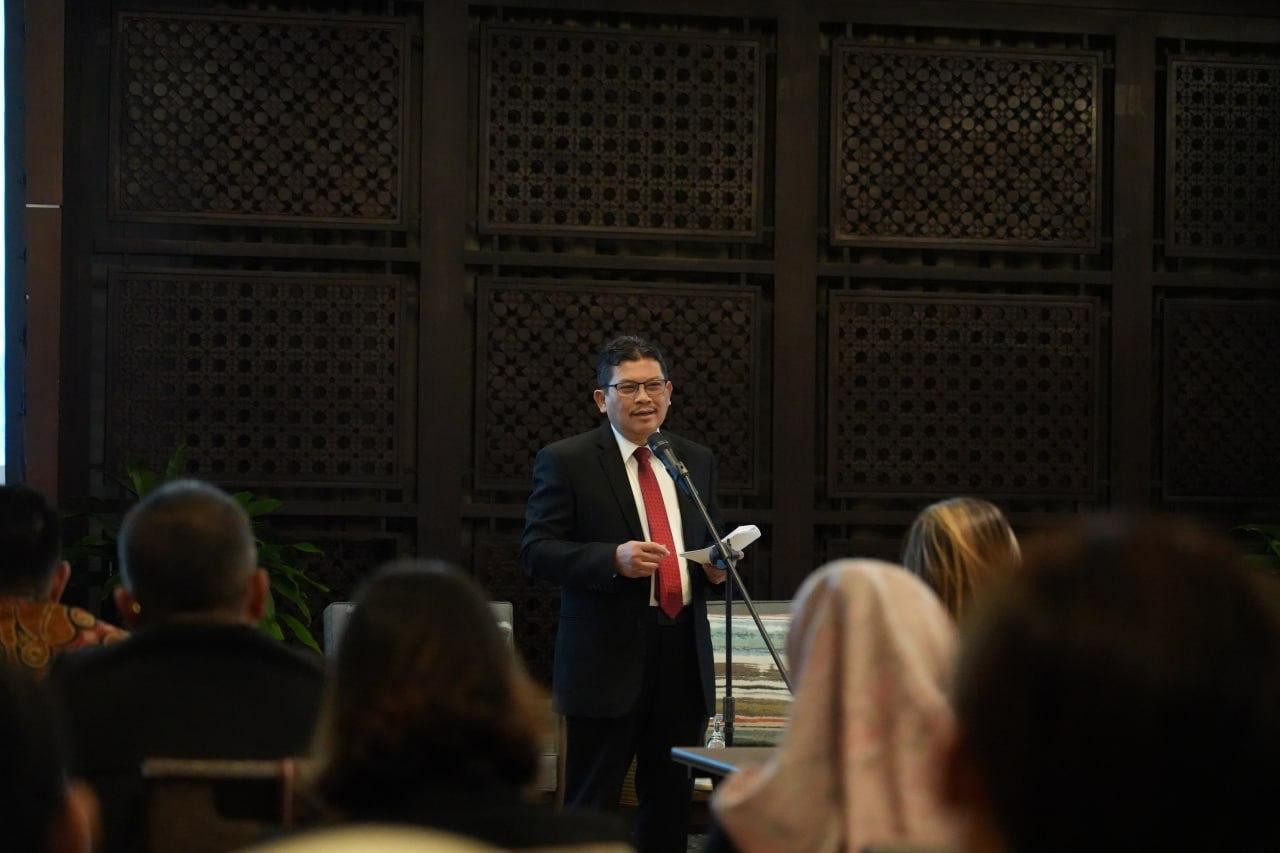Popular Reads
Top Results
Can't find what you're looking for?
View all search resultsPopular Reads
Top Results
Can't find what you're looking for?
View all search resultsHealth spending strategy vital to JKN’s long-term success
Change text size
Gift Premium Articles
to Anyone
B
PJS Kesehatan has reaffirmed its commitment to strengthening the sustainability of Indonesia’s National Health Insurance (JKN) program by optimizing its health spending strategy and enhancing long-term care services.
BPJS Kesehatan president director Ghufron Mukti emphasized that JKN’s success, now covering over 280 million people, reflects strong public trust. However, he noted that this achievement must be met with strategic financial planning to ensure the program’s continued effectiveness.
“The increasing demand for high-quality health services pushes us to innovate while maintaining the stability of the Social Health Insurance Fund,” Ghufron said during the pre-congress of the International Health Economics Association (IHEA) World Congress on Health Economics, held in Bali on Sunday.
Ghufron highlighted ongoing efforts to improve service efficiency through a more effective referral system, ensuring that JKN participants receive the right care based on medical needs at the appropriate facilities. This approach aims to optimize service utilization and control healthcare costs.
He also pointed out the rising number of claims indicates growing public trust in JKN, which simultaneously presents a challenge in maintaining the financial health of the Social Insurance Fund (DJS).
“Sustainability depends not only on broad participation, but also on our ability to ensure high-quality services and equitable access nationwide.”
During the international forum, BPJS Kesehatan exchanged insights with counterparts from Thailand and South Korea to evaluate funding strategies and the development of long-term care systems.
Panelists in the discussion included Piyanart Luangwilaiwan, specialist at the plan and budget division of Thailand’s National Health Security Office (NHSO) and Hyunjin Cho, deputy director of the National Health Insurance Service (NHIS) of the Republic of Korea.
Mahlil Ruby, BPJS Kesehatan’s director of planning and development, explained that innovation in healthcare financing is essential, particularly for costly, planned or excessive services, to ensure that healthcare utilization remains appropriate. He stressed that these measures are necessary to safeguard the JKN program's sustainability and maintain service quality.
“Going forward, the success of JKN will hinge not only on the number of members but on our ability to ensure financial sustainability, service quality and fair access for all segments of society,” Mahlil stated.
BPJS Kesehatan, he continued, could serve as a reference for other countries in managing national health insurance systems, including long-term care. He also believes that international collaboration is key to formulating policies suited to each country’s context.
“We aim to ensure that our health financing strategy guarantees program continuity and service quality for all participants,” Mahlil concluded.










